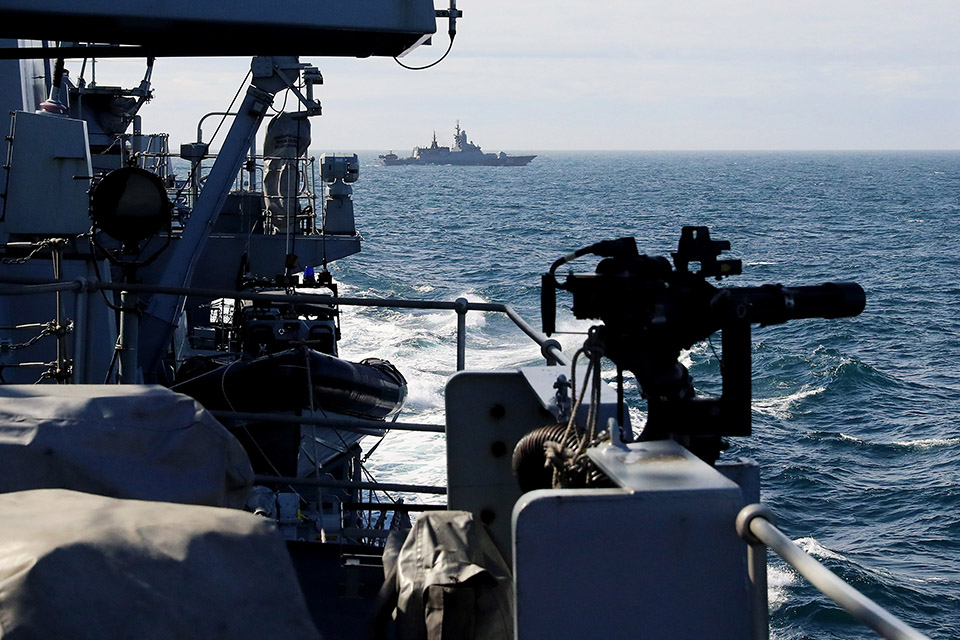|

|
|
Dr. Bernhard Schwartländer, WHO Representative in China, speaks at the launch ceremony for the report on April 14, 2017 in Beijing. [Photo by Chen Boyuan / China.org.cn]
|
The United Nations has urged that all public places in China impose a smoking ban to help reduce tobacco-related diseases that are hurting both China’s health and economy.
While congratulating Shanghai on becoming the latest Chinese city – following Beijing and Shenzhen – to enforce a total smoking ban in public places, the UN remains hopeful that more cities following their examples.
“The Bill China Cannot Afford: Health Economic and Social Costs of China’s Tobacco Epidemic”, a report jointly launched on April 14 by the World Health Organization (WHO) and the United Nations Development Programme (UNDP) stresses that stricter tobacco control could avert millions of deaths.
China is the world’s largest tobacco producer, consumer and manufacturer. In 2014, Chinese smokers consumed 44 percent of the world’s cigarettes, more than the next 29 cigarette- consuming countries combined, including Indonesia, Japan, Russia and the United States.
The report found that around 28 percent of adults (aged above 15) are currently smokers. An average smoker in China smokes around 22 cigarettes – more than one pack – each day; this is almost a 50 percent increase since 1980. The report warned that 1.38 million lives are lost in China each year from tobacco-related diseases.
“If nothing is done to reduce these numbers and introduce more progressive policies, the consequences could be devastating not just for the health of people across the country, but also for China’s economy as a whole,” warned Dr. Bernhard Schwartländer, WHO Representative in China, at a ceremony launching the report.
The pervasive tobacco issue in China, as the report argues, is the low sales price of tobacco. Although the latest tobacco tax increase in 2015 led to a slight rise in the retail price of cigarettes, the price rise was far lower than the average increase in salaries, making cigarettes even more affordable.
“Raising tobacco taxes is one of the most cost-effective measures to reduce consumption, while also generating substantial revenue for health and other essential programs,” said Bert Hofman, World Bank Country Director of China, Mongolia and Korea.
The report argued that raising retail price of cigarettes by 50 percent could lead to 47 million fewer male smokers, 20 million fewer premature deaths over 50 years, and saving eight million people from falling into poverty because of tobacco-related medical costs.
The report also addressed the question of the cost of tobacco control, for it is often an argument raised frequently by the tobacco industry that the use of tobacco contributes to the China’s economy.
“We have seen this over and over again around the world. For the WHO, health and human life are of the highest value and no human life can be measured against the amount of tax revenue you earn from this kind of product,” said Dr. Schwartländer.
Despite its tax contribution, the tobacco industry ultimately creates negative effect for the China’s economy, said Prof. Hu Angang, dean of Institute for Contemporary China Studies at Tsinghua University.
Hu explained that the tobacco industry causes more financial losses, such as smokers’ medical bills, a less efficient workforce (due to health-related absences) and smoking-related accidents, than benefits through its tax contributions.
“We actually did not know this fact until we were undertaking UN-led tobacco control research,” he said, adding: “We used to think that the tobacco industry helped boost the economy more or less.”
UN Sustainable Development Goals (SDGs) commit governments to take action to reduce tobacco use by one-third over the next 15 years in the belief that smoking is a main risk factor for the prevalence of non-communicable diseases.
The UNDP does acknowledge China’s progress in economic development and the subsequent poverty alleviation, according to Nicholas Rosellini, UN Resident Coordinator in China.
“The harmonious and human-centered development, which is the central goal of the Chinese government, requires leaving tobacco addiction behind,” said Rosellini.
Reliance on tobacco is inconsistent with poverty eradication and attaining sustainable development. The report concluded that tobacco control policies can be pro-poor and benefit people with the lowest income the most.

